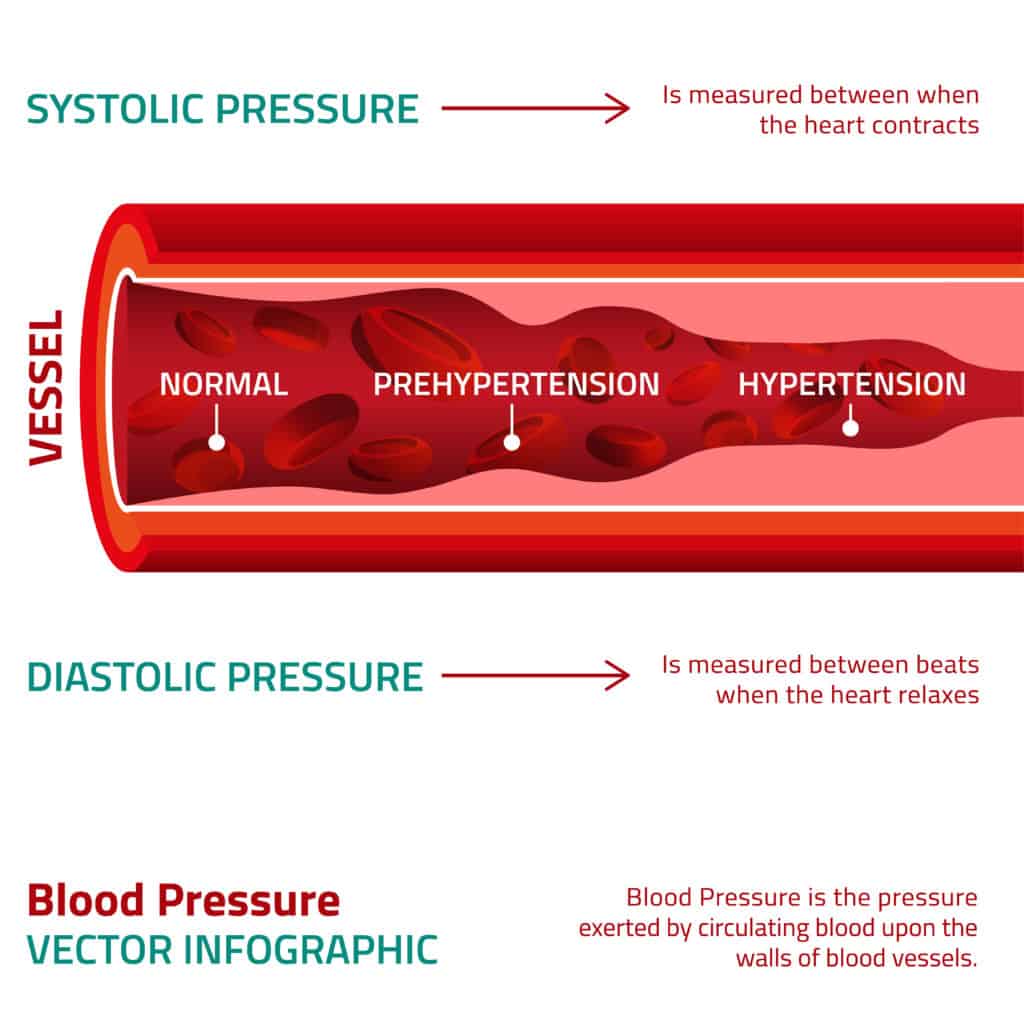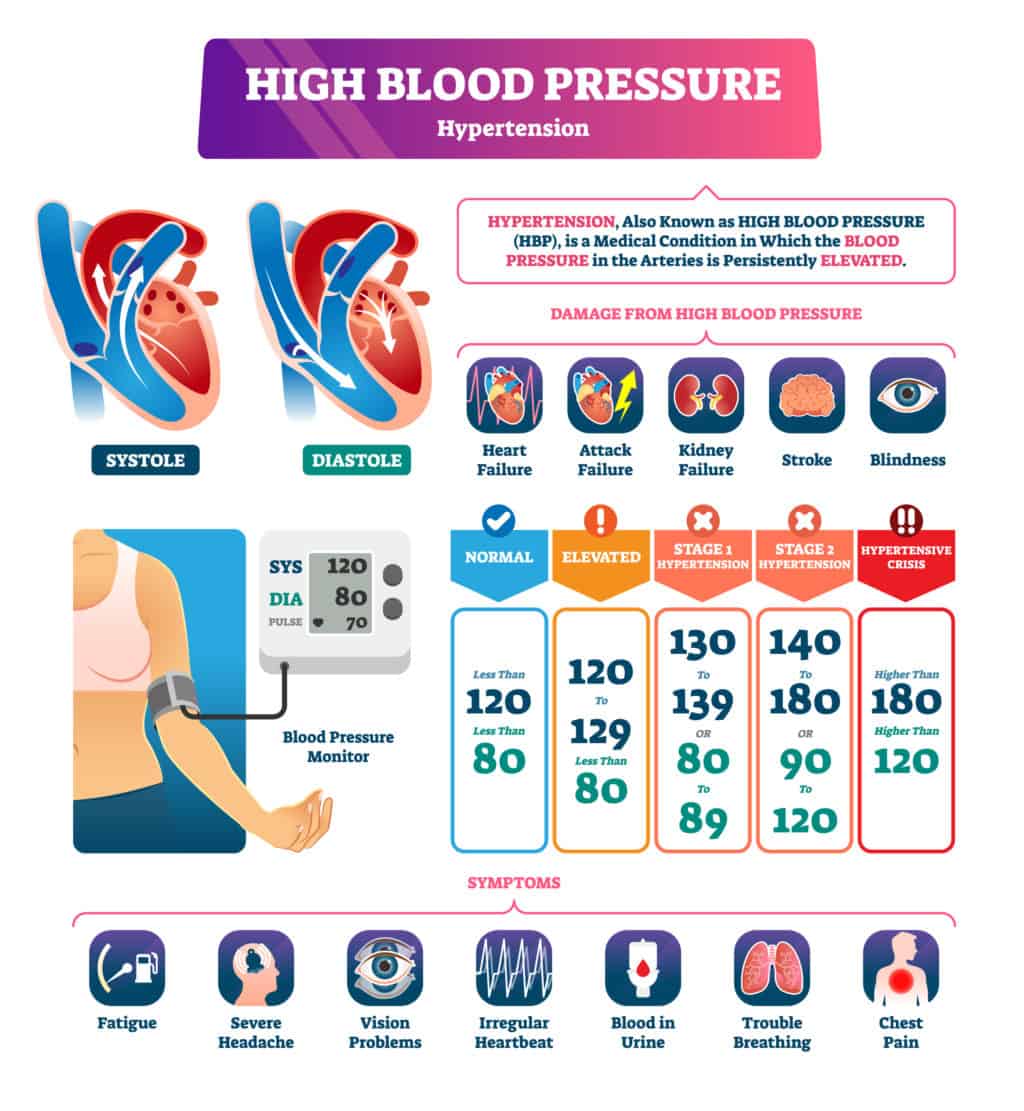At WorkSafe Physical Therapy, our goal is to keep your employees healthy and safe. One way we do this is by screening for blood pressure before they start a career with you!
During our standard screening for physical ability tests and functional capacity evaluations, we check blood pressure. We are often asked why we check this. Many people don’t know that they have high blood pressure until it is too late.
What is high blood pressure?
High blood pressure is often called the “silent killer” because many people do not know they have it. This is a condition in which the pressure of the blood flowing through your arteries is consistently too high.

According to the CDC, 1 in 3 Americans has high blood pressure (or hypertension/HTN). It is called a silent killer because 20% of those Americans don’t know that they have it. In addition, there are no significant warning signs or symptoms associated with hypertension, making it even more deadly.
How does high blood pressure affect physical ability?
When left untreated over a period of time, high blood pressure can damage your heart, brain, kidneys, and other organs. It increases your risk for heart attack and stroke.
High blood pressure can also affect your physical ability. It can make you short of breath and tired, which can impair your ability to do activities such as climb stairs or walk long distances.
Who Is at Risk for High Blood Pressure (hypertension)?
There are several risk factors for developing hypertension. Some of these are modifiable, meaning you can change them, while others are not.
Hereditary or non-modifiable risk factors (the things you can’t change) are:
- family history – if your parents have high blood pressure then you are at a high risk of also having HTN.
- age – the older you are the more likely you are to have high blood pressure.
- race
- gender – until age 64 men are more likely to develop hypertension
- chronic kidney disease
Modifiable risk factors for high blood pressure include:
- lack of physical activity
- poor diet
- being overweight
- drinking too much alcohol
- smoking and tobacco use
- sleep apnea
- stress
- high cholesterol
- diabetes
How to Prevent High Blood Pressure
Preventing and managing high blood pressure can be done with and without medications. Changing certain habits in your life can make a vast improvement and impact on preventing or managing your blood pressure. These habits can include:
- Eat a well-balanced diet that’s low in salt
- Limit alcohol
- Participate in regular physical activity
- Manage stress
- Maintain a healthy weight
- Quit smoking
Classification of Blood Pressures
At WorkSafe Physical Therapy our standard maximum blood pressure for testing is 150/100. Meaning, if a candidate’s blood pressure registers at 150/100 or higher we will not perform the physical ability test.
There are several different classifications of blood pressure. The table below from the CDC classifies blood pressure levels:

What Happens if Someone has High Blood Pressure at Post-Offer Employment Test Appointment?
At WorkSafe Physical Therapy in Wichita, we start all our appointments with a general exam including blood pressure. If we take the employee’s blood pressure and it comes back too high (over 150/100), then we will have them sit in our tranquility room for 10 minutes to relax.
We realize many people are nervous about taking a test and may feel anxious, causing their BP to elevate. We’ll retake their blood pressure after they have rested. If it is still high, we may decide to let them relax for another 10 minutes or send them to their physician to be evaluated.
Many people don’t realize they have high blood pressure or have stopped taking their BP medication.
After the medical exam, the candidate can be rescheduled for the post-offer employment test. Keep in mind that even with a release, if the candidate’s blood pressure is still over 150/100 at the time of screening for the POET, we will not be able to complete the test!
If the medical provider determines that the candidate needs to start on medication to help control the condition, it is important to know that we must wait at least a week before rescheduling the post-offer employment test. This is to give the medication time to work and bring the candidate’s blood pressure down for them to be safe to complete the test.
Final Thoughts on Blood Pressure During Post Offer Employment Testing
Waiting for a candidate or employee to visit the doctor and start a medication regimen may seem like an imposition, but the avoidance of a possible heart attack, stroke, or death in the workplace is well worth the wait.
Our goal at WorkSafe Physical Therapy in Wichita, KS is to keep employees healthy, safe, and productive and a blood pressure screen is just one step in this process. High blood pressure has no obvious signs or symptoms and often causes problems before anyone is aware of it. That is why we screen for blood pressure to help identify this risk factor to all candidates that come through our door!
Contact WorkSafe Physical Therapy to find out how we can help your company
Working to keep you safe, healthy, and productive,

